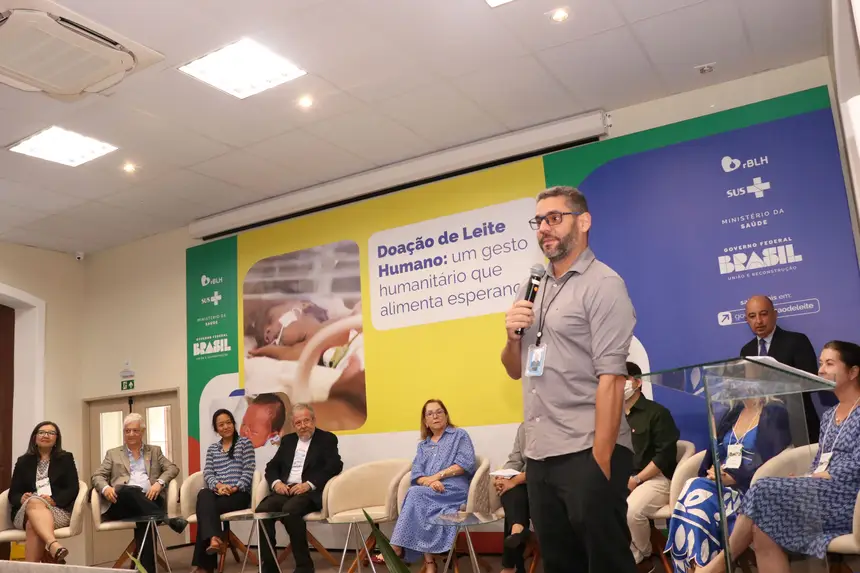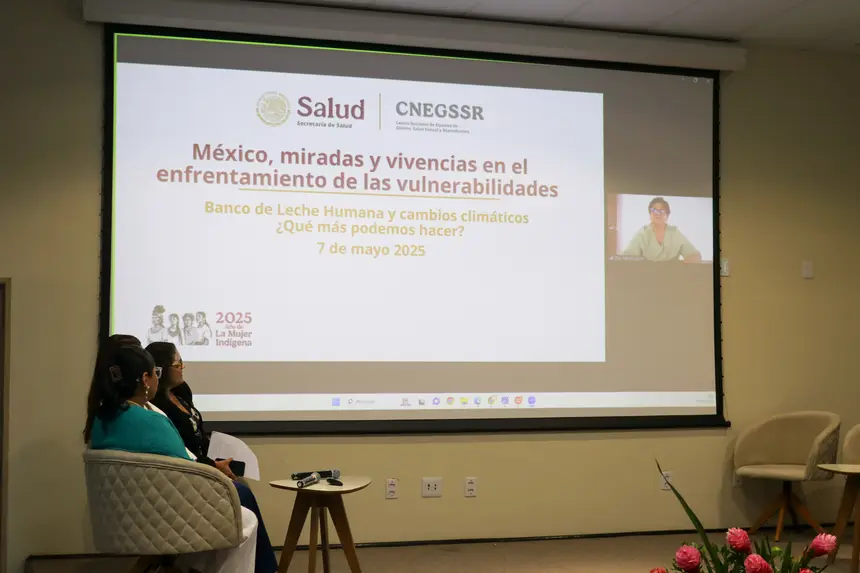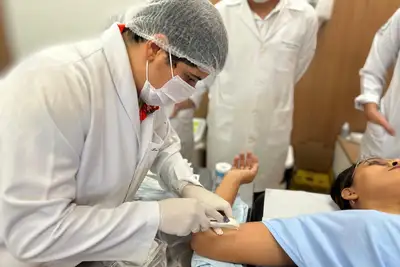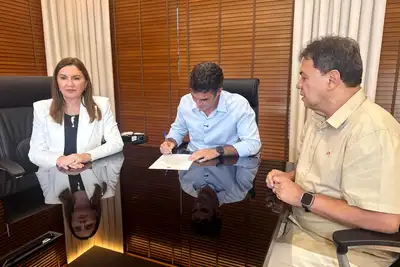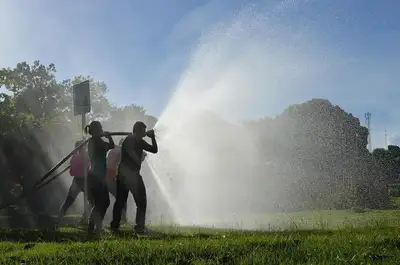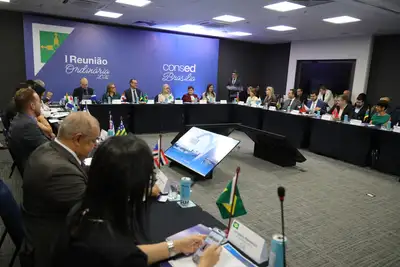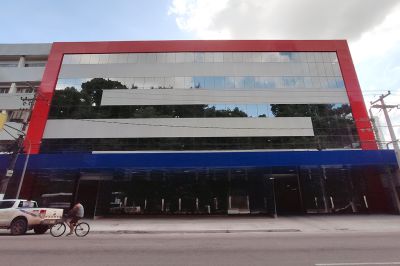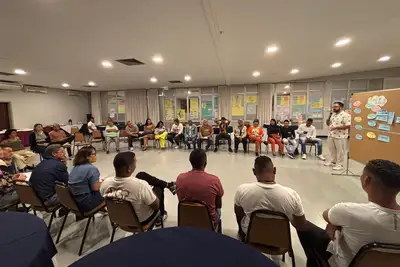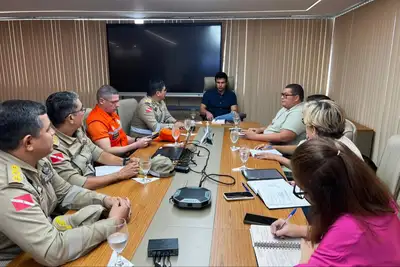World Forum on Human Milk Donation in Belém Reinforces the Work of the Collection Network
Santa Casa is the stage for an international event themed: "Human Milk Bank and Climate Change – What More Can We Do?"
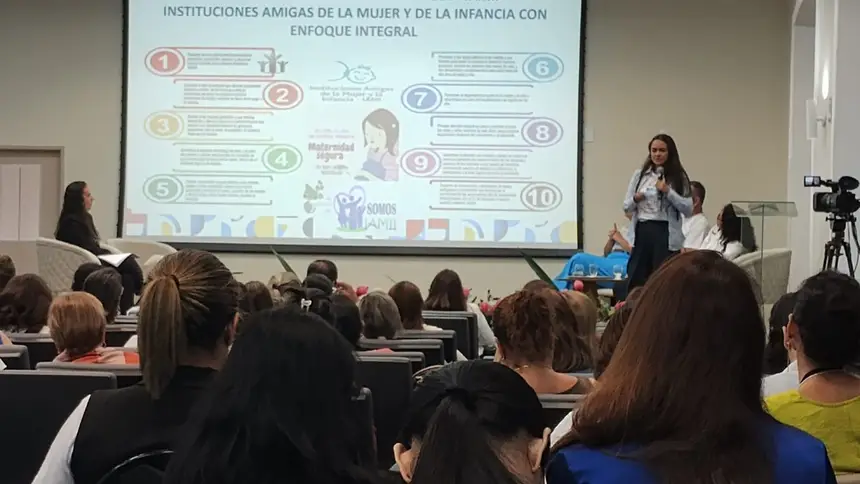
The World Forum on Human Milk Donation, taking place for the first time in a state of the Amazon, discusses on this Wednesday (07) the importance of the network of Milk Banks in Brazilian states and countries that are part of the global network. The event is promoted by the Ministry of Health and Fiocruz in partnership with the Ministry of Foreign Affairs and State and Municipal Health Secretariats across Brazil and is supported by the Pan American Health Organization.
Cynara Souza, manager of the Human Milk Bank at Santa Casa, who participated in the session "Perspectives and Experiences in Facing Programmatic and Social Vulnerabilities of Newborns and Nursing Mothers in the Most Vulnerable Population Strata," emphasizes that the event is providing a reflection on how we should behave in the face of climatic situations such as fires, floods, and river droughts.
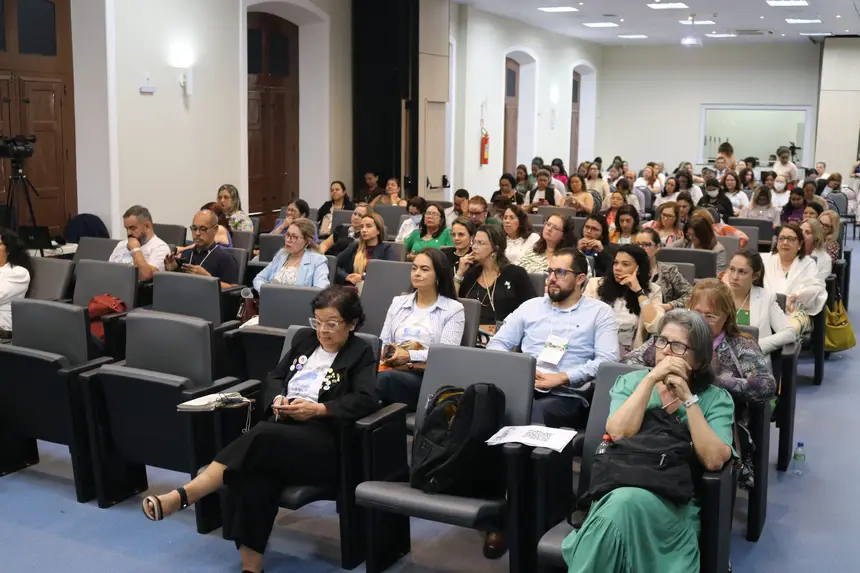
“These are various situations that end up hindering access to the subsistence economy of many families. So, how are we going to behave as a Network in front of the mother-baby binomial to ensure this food and nutritional security, as a safe, healthy, and sustainable food, which is human milk? A raw material to save the babies who need this food. That is why we raise awareness among mothers who are breastfeeding and who donate their excess milk, so they can know a milk bank closer to their municipality, their locality, learn and understand this work, and encourage through the donation of human milk,” emphasizes the manager.
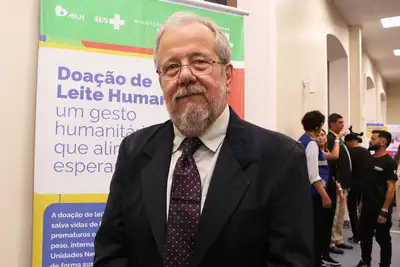
The coordinator of the Brazilian Network of Human Milk Banks (rBLH), João Aprígio de Almeida, expresses his happiness at the event being held in Belém and particularly at Santa Casa do Pará. “Brazil has a four-decade history of building innovative solutions for human milk banks as a strategy for caring for newborns, infants, especially at-risk children. Today Brazil hosts the global network of human milk banks. We have a coordinated action that involves all of Latin America, the Caribbean, Hispanic countries, the Iberian Peninsula, Portuguese-speaking Africa, and the countries that make up the Brics.”
“This is a collective action, and we are carrying it out here as a pre-COP30 Health event. It is important to highlight that Santa Casa de Belém, which is the oldest milk bank in the Amazon region, is having official cooperation with all countries in Latin America, and we thought it appropriate to bring here all the countries that integrate the Pan-Amazon. And bringing this discussion to the Amazon, to Belém, the host of COP, and bringing it inside Santa Casa, the host of the oldest Milk Bank in the Amazon, is an opportunity that makes us very proud,” highlights Aprígio.
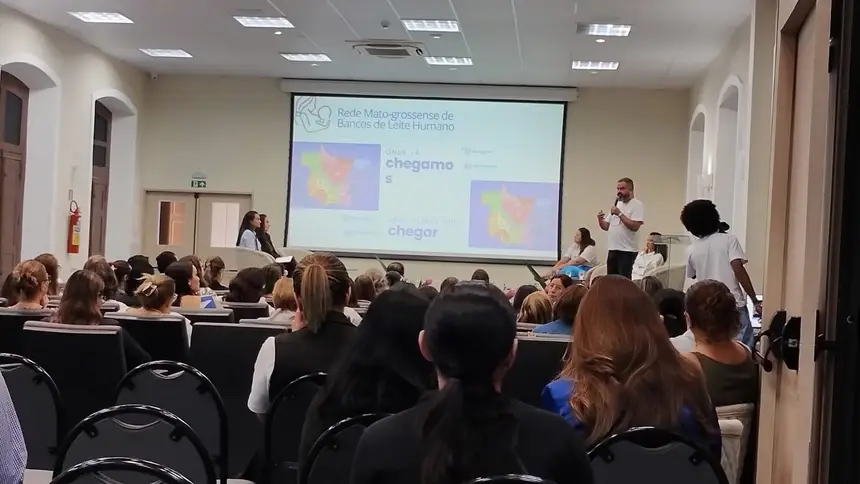
Bruno Carmona, president of the Santa Casa Foundation, highlighted in his speech at the Forum that actions of this nature cannot be carried out without the commitment of people. “People who coordinate, think, plan, and execute what we need to have breast milk. Human milk for children who are in need and who require actions of this nature, and Santa Casa is very happy to be part of the international scenario, to be able to compose and execute what is given to us as a mission,” he emphasizes.
“Caring for people's health by generating knowledge, and these moments when we have various minds thinking, various people who understand the subject and who think about the integration of a network. In municipal, state, regional, national, and international situations are significant. For this, we need engaged people. Thank you very much to the donor mothers for their care, for their sensitivity, and for understanding that there are children who need help, who need human milk,” points out the manager.
Relevance - According to Maria Alves Belém, director of Technical and Operational Support at the Santa Casa Foundation, the World Forum of the Brazilian Human Milk Bank Network has a great objective, which is to strengthen all the work of milk banks in promoting and recruiting voluntary donors for human milk. “It is important so that we can serve the small newborns in our institution, especially those who are more vulnerable. So, this work happens worldwide, and this event brings together both the Brazilian regions, from all Brazilian states, and other countries, especially the Pan-American countries.”
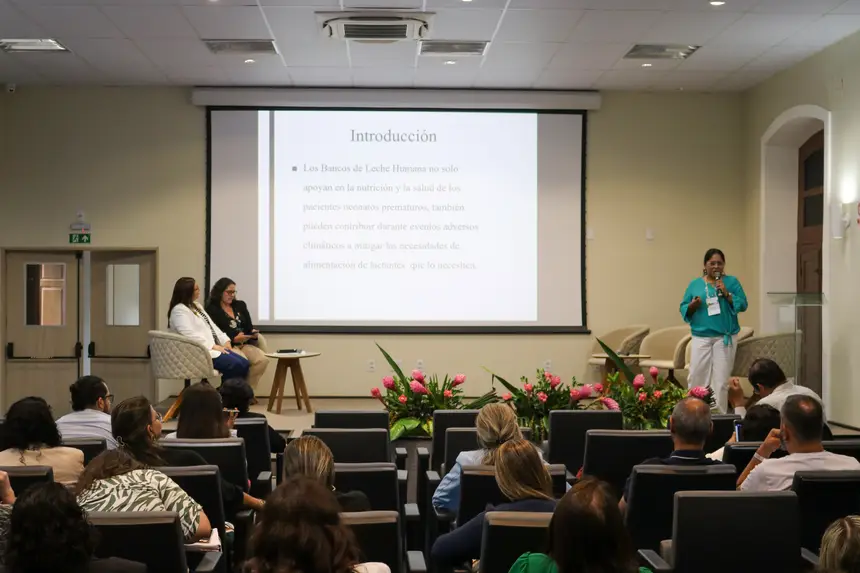
“Santa Casa, being a reference not only for the territory of Pará but also in Brazil. The Milk Bank of Santa Casa was the first bank in the Amazon region and is the reference for the State. And this event, which is held annually, had Belém do Pará as its stage. This year it will also host the global sustainability event, which is COP30. And the milk banks are of equal importance because we always bring a sustainable future for this population, for the future of the population, which is the use of human milk, of breast milk,” emphasizes the director.
João Aprígio de Almeida, who coordinates the rBLH, says that the woman-mother is the great protagonist of this story. “If we think about the child, the child is the main beneficiary. The child is very important, but it is the woman-mother who has the premature child, in conditions that require special care, who lives the stress of having the child before time, of not being able to hold the child, and lives again the stress of not having the milk. And knowing that milk is important for her child and the other woman, who is a mother, who has a child, who breastfeeds and shares her milk, shares more than her milk, shares her motherhood. They are fundamental, they are the reason for our existence,” he emphasizes.



